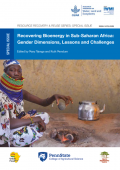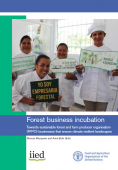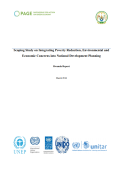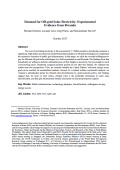
Restoration of degraded land can create vast bioenergy crop potential, without constraining food crops or other land use options. This presents an important opportunity for African countries to develop modern, sustainable bioenergy from rapidly growing wood crops at the same time as pursuing ambitious forest landscape restoration initiatives.
Bioenergy from Degraded Land in Africa: Sustainable and technical potential under Bonn Challenge pledges presents a methodology to estimate the sustainable energy potential from land restoration in line with the Bonn Challenge, particularly as it relates to African countries. (The Bonn Challenge is a global effort to bring 150 million hectares of the world’s deforested and degraded land into restoration by 2020, and 350 million hectares by 2030.)
The African Forest Landscape Restoration initiative, AFR100, has set out to collect pledges to restore 100 million hectares of degraded land, mostly in in sub-Saharan Africa. To date, 18 countries have pledged to restore 75 million hectares.

Forest business incubation is a support process that accelerates the successful development of sustainable businesses in forest landscapes. There is much to develop. The aggregate gross annual value from smallholder producers within forest landscapes may be as much as US$1.3 trillion.
Forest Business Incubation: Towards Sustainable Forest and Farm Producer Organisation (FFPO) Businesses that Ensure Climate Resilient Landscapes demonstrates how to overcome business incubation challenges in remote forest landscapes. These may include low densities of educated entrepreneurs, high logistical costs, scarce infrastructure to differentiate products, and few capable business mentors. The book includes an introduction to the forest business incubation service delivery model, detailed case studies are presented of attempts to deliver business incubation services in forest landscapes, an analysis of the data presented by the case studies and some observations and conclusions about how best to develop forest business incubation in the service of both forests and people.


